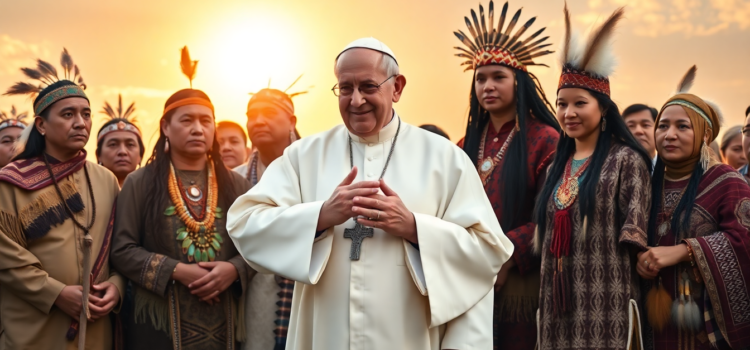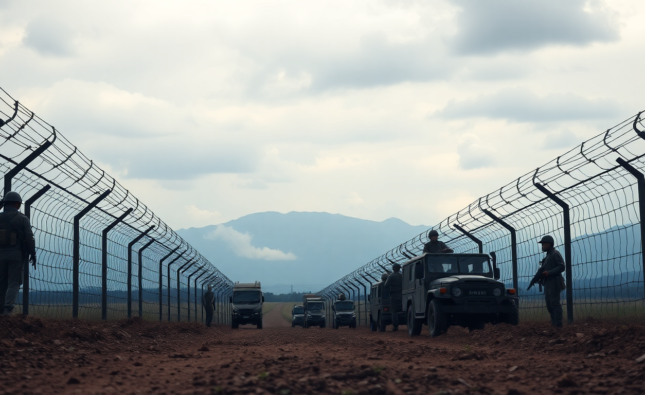
Pope Francis’s Legacy: Reconciliation and Historic Apology to Indigenous Peoples
Pope Francis’s tenure has been marked by profound efforts towards reconciliation, especially with Indigenous communities affected by historical injustices perpetrated by the Catholic Church. His actions, including a momentous apology to Canadian Indigenous leaders, highlight a commitment to healing and forgiveness. In this analysis, l’ll explore how Pope Francis’s legacy pertains to these important shifts within the Catholic Church and beyond.
Reconciliation Efforts within the Catholic Church
In recent years, Pope Francis has emphasized the importance of reconciliation, not only among Catholics but across the wider Christian community. His appeal for unity between the Orthodox and Catholic Churches underscores the significance of reconciled differences, essential for a robust Christian witness. This focus has been observed in what many describe as the “Francis Effect,” with 41.8% of lay Catholics reporting increased participation in confession after Pope Francis’s repeated calls for reconciliation.
Despite a relatively low regular use of the Sacrament of Reconciliation—only 10% of Catholics attend confession monthly—Pope Francis’s consistent advocacy for unity reinforces the Church’s pastoral approach to healing divisions. In a world marked by conflict, his message about bridging doctrinal divides and advocating for walking together in love resonates with many believers.

A Historic Apology to Indigenous Peoples
On April 1, 2022, Pope Francis issued a groundbreaking apology to Canadian Indigenous leaders at the Vatican, acknowledging the Church’s complicity in abuses at residential schools. He expressed “indignation and shame” and directly sought forgiveness, addressing a pivotal request from the 2015 Truth and Reconciliation Commission. The apology was notable for its threefold focus: it acknowledged the context of conquest, reaffirmed the necessity of the Gospel, and demonstrated contrition for the Church’s failings, which he described as a “counter-witness” to Christian teachings.
Pope Francis’s promise to visit Canada and meet Indigenous peoples on their own land underscores a commitment to fostering dialogue and understanding. This visit, anticipated with high hopes, holds the potential for genuine healing and reconciliation.
Impact on Indigenous Healing and Global Reconciliation
The significance of Pope Francis’s apology cannot be overstated; it represents a critical step in the Catholic Church’s journey towards truth and justice. His appeal for reconciliation extends beyond Canada, as Pope Francis has also addressed global conflicts, notably calling for peace in Ukraine. Such initiatives highlight his broader vision for justice and dialogue on the world’s stage.
The healing process for Indigenous communities is complex and ongoing, yet this historic apology has provided a renewed impetus for dialogue. It serves as a model for restorative justice, encouraging renewed relationships between the Church and Indigenous peoples worldwide.
As the Church seeks to rectify its colonial legacy, Pope Francis’s apology is a reminder of the power of words in initiating healing. The importance of interfaith dialogue concerning Indigenous issues remains crucial as the Church and Indigenous communities strive for mutual understanding and respect.
Frequently Asked Questions
What is Pope Francis’s legacy in terms of reconciliation?
Pope Francis’s legacy is strongly tied to his concerted efforts in promoting reconciliation and healing within the Catholic Church, especially regarding historical injustices involving Indigenous peoples.
Why is Pope Francis’s apology to Indigenous peoples significant?
The apology marked a historic acknowledgment of the Catholic Church’s role in past abuses at residential schools, offering a pathway to dialogue and healing for Indigenous communities.
How does Pope Francis view reconciliation efforts?
Pope Francis views reconciliation as essential to Christian witness, urging unity among diverse Christian denominations and emphasizing the importance of walking together in love.
What impact does Pope Francis’s apology have on Indigenous communities?
While the impact may vary, the apology has generally been seen as a positive step towards healing, fostering renewed relationships, and prompting broader societal discussions on colonial legacies.
How has Pope Francis addressed global reconciliation efforts?
Beyond Indigenous issues, Pope Francis has called for peace in global conflicts, such as Ukraine, advocating for dialogue and justice as part of his broader reconciliation missions.










Comments